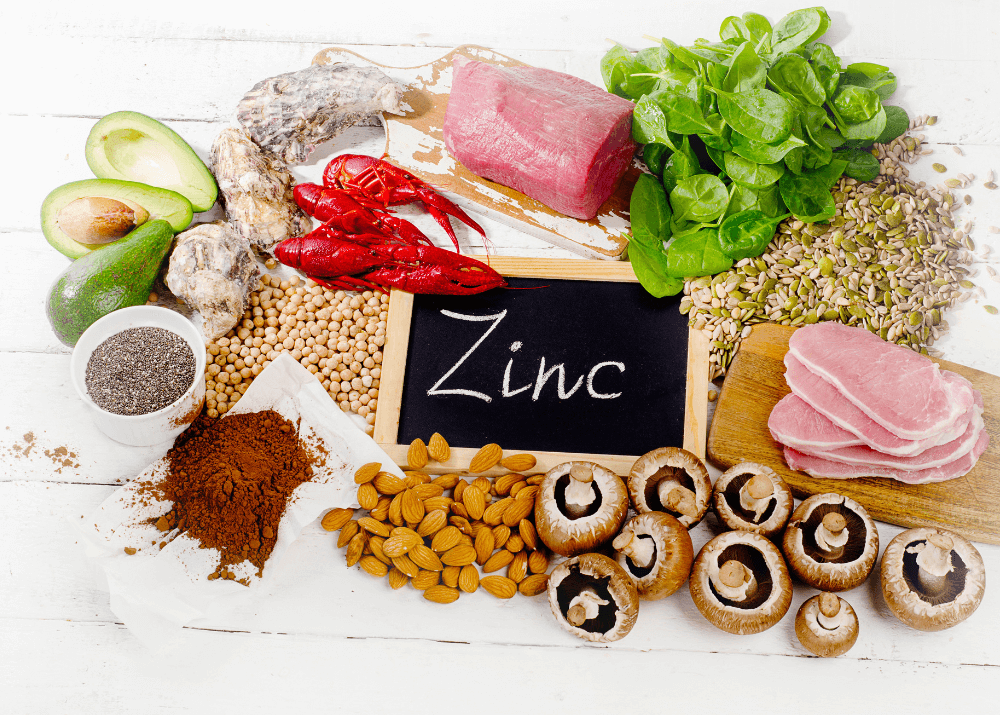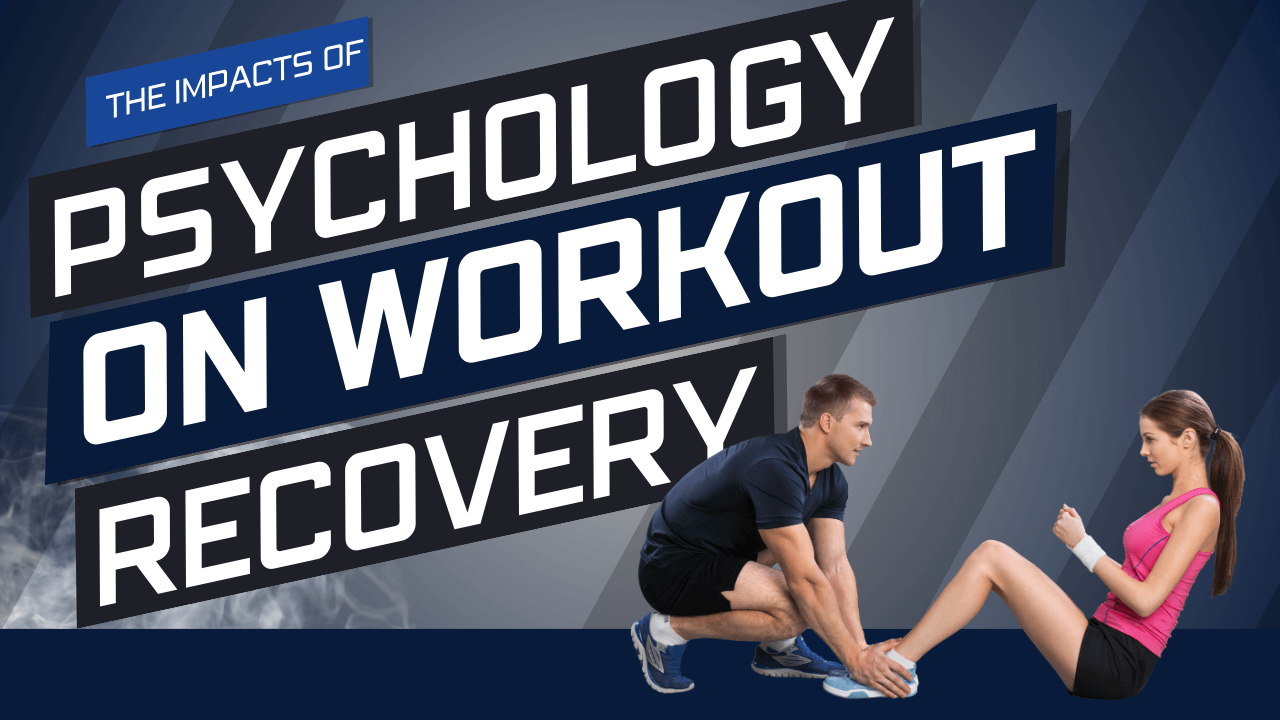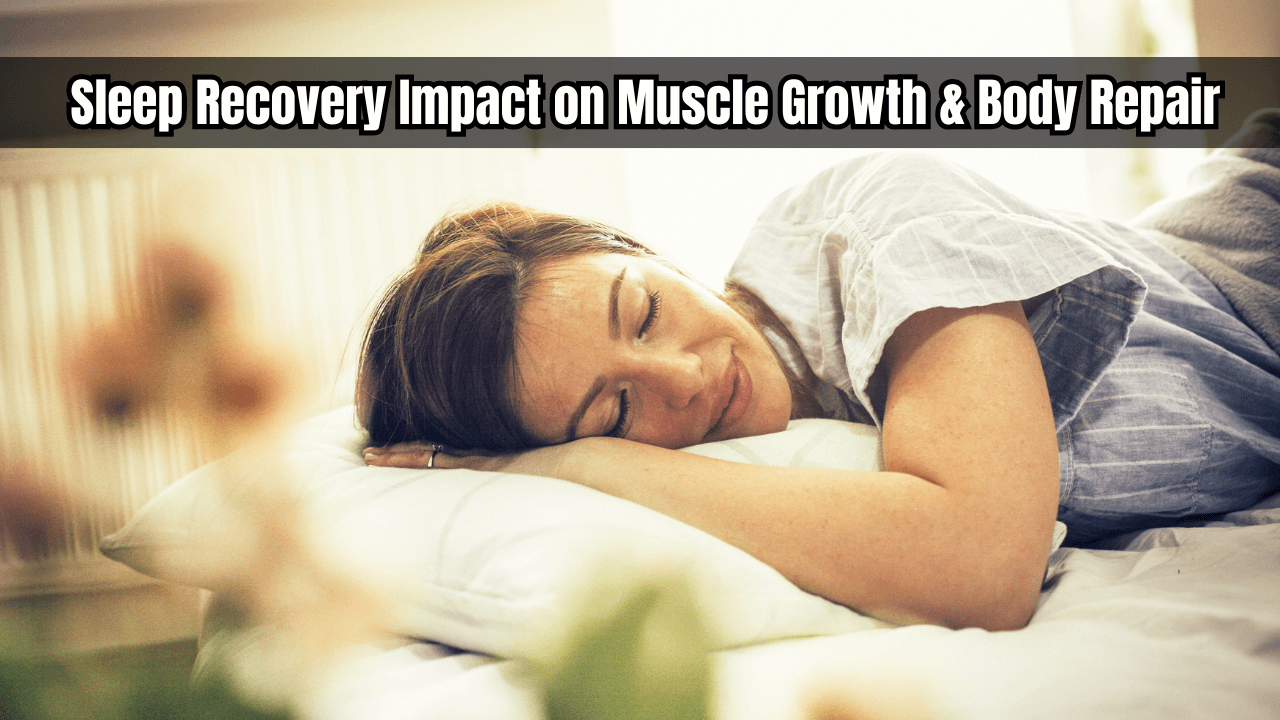Zinc, an essential mineral often overlooked, plays a vital role in numerous bodily functions. From boosting immune health to aiding in wound healing, the benefits of zinc are extensive and crucial for maintaining overall well-being. This guide delves deep into understanding zinc, focusing on how to recognize and tackle zinc deficiency, optimize zinc absorption, and, most importantly, how to harness the full benefits of zinc through diet and supplementation.
Meeting these recommended daily intakes ensures an adequate supply of zinc.
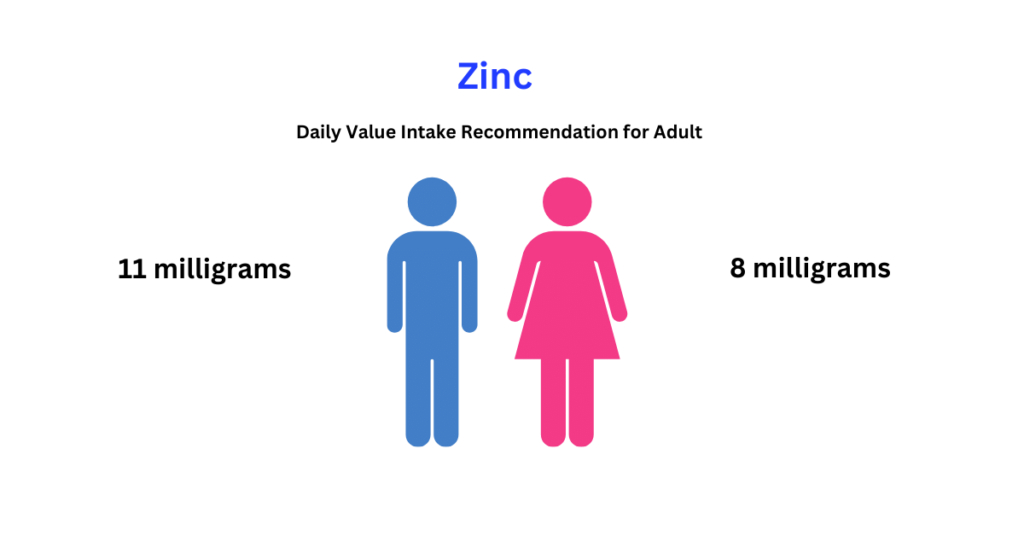
Top Sources of Zinc: A Dietary Treasure Trove
To keep your zinc levels up to par, here’s a list of foods rich in zinc you might want to include in your meals:
- Oysters: These shellfish are zinc superstars, with 74 milligrams in just 3 ounces.
- Beef: A staple in many diets, offering 4.5-5.5 milligrams in 3 ounces.
- Pork: Provides around 2.5 milligrams in a 3-ounce serving.
- Chicken: A versatile choice with 1.5-2.5 milligrams per 3 ounces.
- Cashews: Snack on these for about 1.6 milligrams per ounce.
- Chickpeas: Great in salads or as hummus, with 1.3 milligrams in half a cup.
- Yogurt: A creamy option providing 1.7 milligrams per cup.
- Cheese: Adds about 1 milligram of zinc per ounce.
- Oatmeal: A breakfast choice offering 1.1 milligrams per packet.
- Almonds: Munch on these for 0.9 milligrams per ounce.
Incorporating these zinc-rich foods into your diet is a surefire way to meet your daily zinc needs.
Benefits Of Zinc:
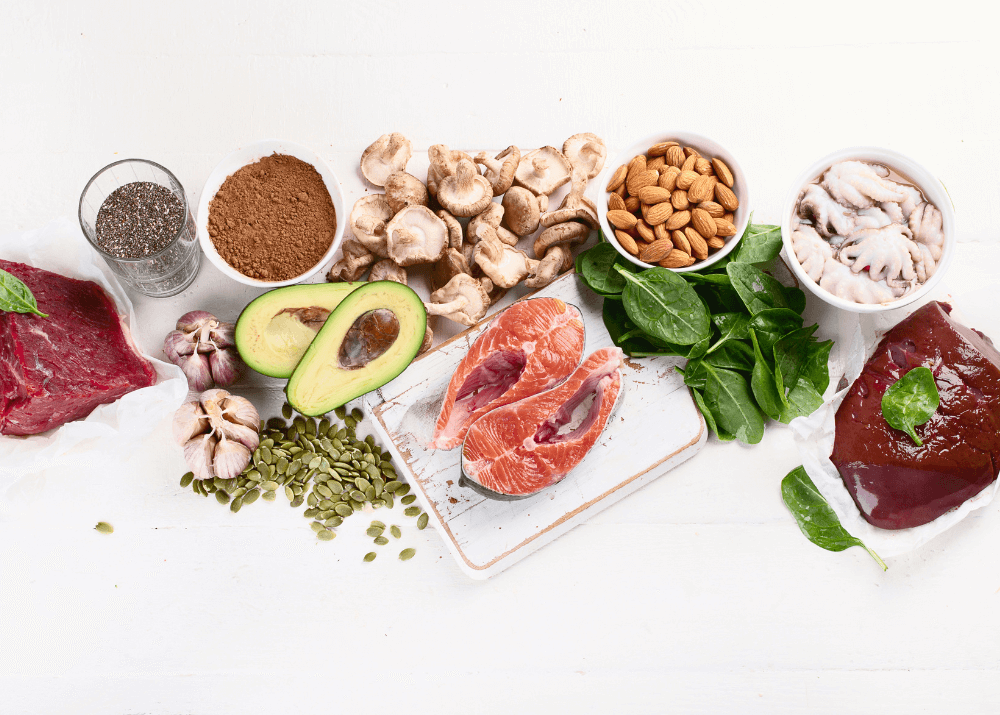
Certainly, zinc is a vital mineral with a multitude of benefits for the body. Here are some key benefits of zinc:
- Boosts Immune Function: Zinc is crucial for maintaining a strong immune system. It helps in the development and function of immune cells, playing a pivotal role in combating infections and healing wounds.
- Supports Growth and Development: Zinc is essential for cell growth and division, making it particularly important for proper growth and development in infants, children, and adolescents.
- Aids in Wound Healing: Due to its role in cell growth and immune function, zinc is effective in healing skin injuries and reducing the risk of infection.
- Improves Skin Health: Zinc is often used in skin creams and lotions to treat rashes, acne, and other skin conditions. It’s known for its anti-inflammatory properties and ability to reduce acne-causing bacteria.
- Enhances Metabolic Function: Zinc is involved in various aspects of cellular metabolism. It’s a necessary component of several enzymes that aid in metabolism, digestion, and nerve function.
- Promotes Reproductive Health: In men, zinc plays a role in testosterone production, which is crucial for reproductive health. It’s also important for the health of reproductive organs in both genders.
- Supports Mental Health: Zinc has been found to influence brain function and mood. Adequate zinc levels are linked to improved memory and cognitive function.
- Maintains Sense of Taste and Smell: Zinc is important for keeping your senses of taste and smell functioning properly. A zinc deficiency can reduce these senses.
- Regulates Blood Sugar: Zinc helps to balance insulin, the hormone responsible for regulating blood sugar levels. This makes it important for those managing diabetes.
Navigating Zinc Deficiency: Symptoms and Solutions
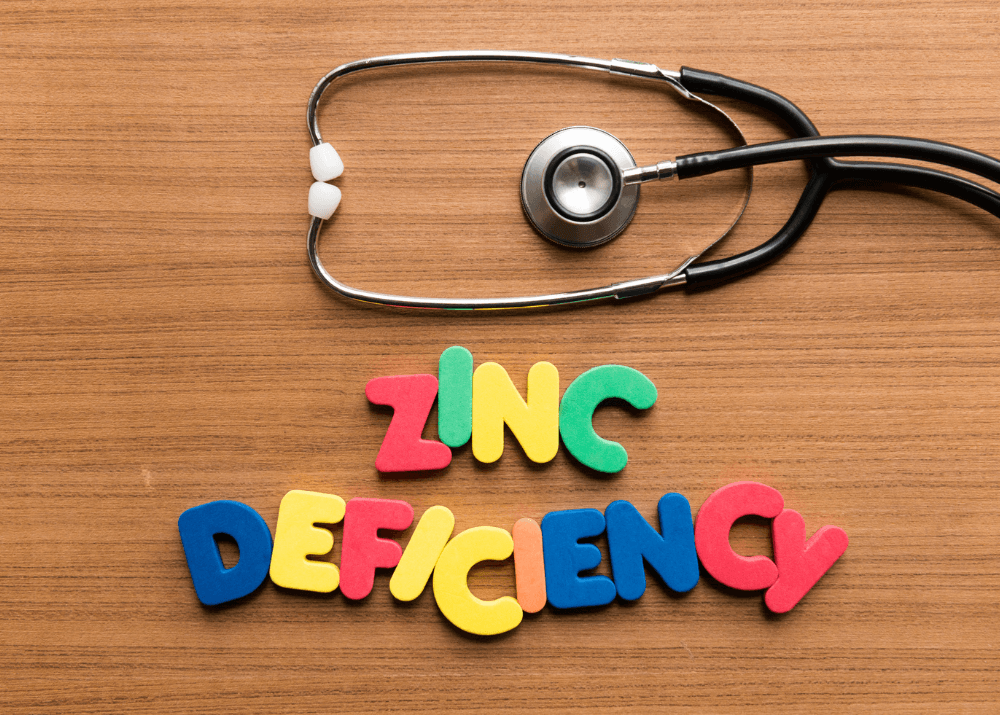
Zinc deficiency is a health concern that can lead to a range of problems, some subtle and others more serious. It’s especially common in individuals who don’t have regular access to foods containing zinc or those with medical conditions that impair zinc absorption, such as digestive disorders or certain chronic illnesses.
Symptoms of Zinc Deficiency
The symptoms of zinc deficiency can be varied, making it sometimes hard to diagnose. Key signs include:
- Hair Loss: Zinc plays a vital role in hair growth, so a deficiency may lead to thinning hair or baldness.
- Decreased Alertness: Lack of zinc can affect your cognitive functions, leading to decreased concentration and mental lethargy.
- Impaired Taste and Smell: Zinc is crucial for the senses of taste and smell. A deficiency can dull these senses, affecting your enjoyment of food.
- Weakened Immune System: Zinc is essential for a healthy immune system. A deficiency might result in an increased susceptibility to infections and slow wound healing.
- Developmental Problems: In children, insufficient zinc can cause stunted growth and delayed developmental milestones.
Solutions for Zinc Deficiency
When dietary intake isn’t sufficient, or specific health conditions exacerbate the deficiency, healthcare professionals might suggest zinc supplements. These supplements can be an effective way to quickly increase zinc levels, but they should be taken under medical supervision to avoid excessive intake.
Optimizing Zinc Absorption
Zinc absorption can be a tricky process, influenced by various dietary components and lifestyle factors. Understanding and managing these factors is key to maintaining optimal zinc levels.
Factors Affecting Zinc Absorption
- Phytates in Diet: Phytates, found in whole grains, legumes, seeds, and some nuts, can bind zinc and inhibit its absorption. Soaking, sprouting, fermenting, or cooking these foods can reduce phytate levels and improve zinc absorption.
- Interaction with Other Minerals: High intakes of calcium and iron, especially from supplements, can interfere with zinc absorption. It’s important to strike a balance between these nutrients.
- Alcohol Consumption: Excessive alcohol can decrease zinc absorption and increase zinc excretion.
- Digestive Health: Conditions like Crohn’s disease, ulcerative colitis, and other gastrointestinal disorders can affect zinc absorption.
Enhancing Zinc Absorption
- Combining Foods: Eating zinc-rich foods with sources of protein like meat can enhance zinc absorption.
- Supplement Timing: If you’re taking calcium or iron supplements, consider consuming them at different times from zinc supplements or zinc-rich foods.
- Regular Health Checks: If you suspect a zinc absorption issue, consulting with a healthcare provider is essential. They can offer tailored advice and, if necessary, conduct tests to monitor zinc levels.
You might be interested in: The Essential Guide to Vitamin K: Benefits, Sources, and More
Conclusion
In summary, while zinc might be a small component in the periodic table, its impact on our health is significant. Recognizing the benefits of zinc and incorporating zinc-rich foods into your diet can lead to remarkable improvements in health, from stronger immunity to better wound healing. Whether through dietary changes or supplements, paying attention to zinc intake is a vital step toward achieving and maintaining optimal health. Remember, a little zinc goes a long way in paving the path to a healthier you.


